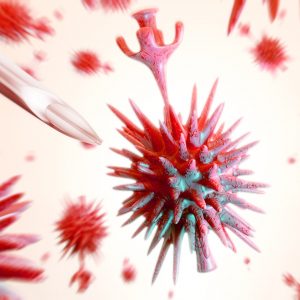Advanced Micro/nano Technology for Managing COVID-19
 The ongoing pandemic of coronavirus disease 2019 (COVID-19) has attracted researchers over the world to constrain the disease in all possible ways. While RT-PCR based molecular test is being used as the gold standard method for detecting SARS-CoV-2, its complexity limits its use at the point of need. There is a high demand for developing cost-effective, rapid, simple and accurate alternatives towards on-site testing.
The ongoing pandemic of coronavirus disease 2019 (COVID-19) has attracted researchers over the world to constrain the disease in all possible ways. While RT-PCR based molecular test is being used as the gold standard method for detecting SARS-CoV-2, its complexity limits its use at the point of need. There is a high demand for developing cost-effective, rapid, simple and accurate alternatives towards on-site testing.
Micro/nano technology mainly refers to methods which are designed and manipulated at micrometer and nanometer scale. In general, micro/nano technology can be classified into several categories, such as micro/nano materials, functional micro/nano structures, on-chip micro/nano devices and so on. All those technologies can provide unique advantages for next-generation biomedical applications, as all crucial building blocks of life (e.g., cells, proteins, and nucleic acids) are covered within the scale of micro/nano technology. Consequently, the potential of micro/nano technology has become increasingly attractive during the COVID-19 pandemic. Unlike conventional clinical diagnostic instruments, micro/nano technology offer opportunities for new insights into molecular mechanisms and biomarker identification of COVID-19 progression. However, the field progress has been hindered by the lack of robustness and reproducibility, and leaves questions with regard to the integration and functionalization of sensing elements and the standardization of the measurement protocols. This special issue will focus on recent advances in COVID-19 diagnostic based on micro/nano technology and how to tackle the above-mentioned challenges.
The exploration of surfaces, interfaces, nanostructures and thin films using:
- Micro/nano technologies for biospecimen storage, transport, enrichment and processing.
- Micro/nano technologies for disinfection
- Micro/nano technologies for SARS-CoV-2 nucleic acid testing
- Micro/nano technologies for SARS-CoV-2 antibody testing
- Micro/nano technologies for environmental monitorin
- Wearable devices integrating micro/nanoscale structures for COVID-19 monitoring.
- Integrated point of care COVID-19 testing relying on micro/nano technology.
- Micro/nano technologies for drug analysis and accelerating drug discovery for vaccines
- Addressing the challenges of applying micro/nano technology for COVID-19 diagnosis, vaccination, or therapy.
Guest Editors
Xuexin Duan, School of Precision Instrument and Opto-electronics Engineering, Tianjin University, China
Weihua Guan, School of Electrical Engineering and Computer Science, The Pennsylvania State University, USA
Submission Instructions:
Manuscripts should be no more than 25 pages of A4 paper (including figures and tables). Text should be printed on one side only and be double-spaced. Interested authors are welcome to email their tentative titles and abstracts to nanope@tju.edu.cn. Full electronic manuscripts (MS-Word, or PDF file) should be submitted via the NPE online system; please select special issue on ‘Advanced Micro/nano technology for managing COVID-19’. All manuscripts must be prepared using the Guide for Authors and will be reviewed by at least two referees.
